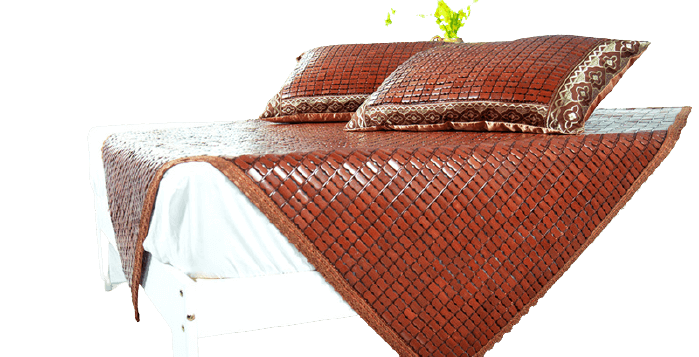Key Takeaways
| Question | Answer |
|---|---|
| When were wind chimes first invented? | Wind chimes date back to around 3000 BC in Southeast Asia. |
| What materials were used in ancient times? | Early wind chimes were made from bone, wood, bamboo, and shells. |
| How did wind chimes evolve over time? | Wind chimes evolved from organic materials to include metals and glass, with designs becoming more intricate and culturally significant. |
| What cultures used wind chimes? | Wind chimes were used in China, Japan, Rome, and the Netherlands, each adding unique designs and purposes. |
| What are some modern uses of wind chimes? | Today, wind chimes are used for aesthetic appeal, creating a peaceful atmosphere, and enhancing outdoor spaces. |
| How do wind chimes relate to Feng Shui? | In Feng Shui, wind chimes are believed to promote positive energy (Chi) and balance within the home. |
Introduction
Wind chimes have a rich history and cultural significance that spans thousands of years and crosses many different cultures. At MesidaBamboo, established in 1999, we are dedicated to continuing this tradition with our high-quality bamboo wind chimes. We are more than just a brand – we are a community of sustainability advocates, quality craftsmen, and bamboo enthusiasts. Discover the fascinating journey of wind chimes and their impact on various cultures throughout history.
Historical Timeline of Wind Chimes
Ancient Origins (3000 BC)
The earliest wind chimes date back to around 3000 BC in Southeast Asia. These primitive chimes were made from organic materials such as bone, wood, bamboo, and shells. They were likely used not only for their pleasant sounds but also for their ability to ward off birds from crops, ensuring a better harvest.
Development in China (1100 BC)
By 1100 BC, wind chimes had evolved significantly in China. The Chinese introduced tubular bells, known as Feng-lings, which were used in religious ceremonies and Feng Shui practices. These early wind chimes were believed to attract positive energy and ward off evil spirits, playing a crucial role in Chinese spirituality.
Spread to Other Cultures
- Japan: Wind chimes, known as furin, became popular during the Heian period (794-1185 AD). These glass or metal chimes were often hung from the eaves of houses and temples, believed to ward off evil spirits and promote a sense of peace and relaxation.
- Rome: Roman wind bells, or tintinnabulum, were not exactly wind chimes but served similar purposes. Made of bronze, they were used to bring good fortune and ward off the evil eye.
- Netherlands: In the 2nd century AD, the Dutch introduced glass into the construction of wind chimes. These glass wind chimes quickly became symbols of wealth and power, spreading their popularity across various cultures.
Cultural Significance of Wind Chimes
Feng Shui and Chi
In Feng Shui, wind chimes are essential tools for promoting the positive flow of Chi, the vital life force. The gentle sounds of wind chimes are believed to create a harmonious balance in the environment, enhancing peace and prosperity. They are often placed in specific areas to correct negative energy flows and bring balance to homes and gardens.
Religious Practices
Wind chimes have been used in religious practices for centuries. In ancient China, they were hung in temples and pagodas to ward off evil spirits and attract peaceful ones. Similarly, in Japan, fur was used in Buddhist temples to cleanse the environment and promote good fortune.
Symbolism of Wealth and Prestige
Throughout history, wind chimes have also been symbols of wealth and prestige. In medieval Europe and the Netherlands, owning intricate and ornate wind chimes made from precious materials like bronze and glass was a sign of wealth and power. These chimes were often used to display social status and affluence.
Evolution of Materials and Design
Ancient to Modern Materials
Wind chimes have evolved from simple organic materials to include metals like bronze, aluminum, and glass. This evolution has allowed for more intricate designs and improved durability, making wind chimes a lasting addition to outdoor spaces.
Modern Wind Chimes
Modern wind chimes, like those produced by Woodstock Percussion, Inc. since 1979, are precisely tuned to specific musical scales. This innovation has transformed wind chimes from simple noise-makers into sophisticated musical instruments that produce harmonious and soothing sounds.
Notable Designs and Innovations
The introduction of musically tuned chimes has revolutionized wind chime design. Companies now create chimes with sounds inspired by different cultures, such as Balinese or Gregorian chants, adding a unique auditory experience to their visual appeal.
Modern Uses of Wind Chimes
Aesthetic and Decorative Appeal
Today, wind chimes are widely appreciated for their aesthetic and decorative appeal. They enhance the beauty of gardens, patios, and balconies, creating a serene and enchanting atmosphere. The gentle melodies produced by wind chimes add a soothing auditory element to outdoor spaces, making them a favorite choice for relaxation and meditation.
At MesidaBamboo, we offer a variety of beautifully crafted bamboo wind chimes that can transform any space into a tranquil oasis. Our chimes are designed to not only look stunning but also to produce harmonious sounds that bring peace and calm.
Practical Applications
Wind chimes serve several practical purposes beyond their decorative value. They are often used to mask unwanted environmental noises, such as traffic or industrial sounds, creating a more pleasant and peaceful environment. Additionally, wind chimes can act as a gentle alarm system, alerting homeowners to changes in the wind or the presence of visitors.
Explore our Ultimate Guide to Choosing and Caring for Bamboo Wind Chimes to learn more about selecting the perfect wind chimes for your needs and maintaining their beauty and functionality.
Expert Insights and Benefits
Promoting Positive Energy
In Feng Shui, wind chimes are powerful tools for promoting the flow of positive energy (Chi) in a space. The gentle sounds produced by wind chimes help to disperse negative energy and attract positive vibes, enhancing the overall harmony and balance in the environment. This makes them an ideal addition to homes, gardens, and workplaces.
Learn more about the benefits of wind chimes in our Comprehensive Guide to Bamboo Wind Chimes, where we delve into their various uses and advantages.
Health and Well-being
The soothing sounds of wind chimes can have a profound impact on mental health and well-being. They promote relaxation, reduce stress, and create a calming atmosphere that can help alleviate anxiety and tension. The rhythmic tones of wind chimes can also aid in meditation and mindfulness practices, providing a focal point for concentration and tranquility.
For tips on creating the perfect environment with wind chimes, check out our Guide to Hanging Bamboo Wind Chimes.
Conclusion
Wind chimes have a rich history and cultural significance that make them more than just decorative items. From their ancient origins in Southeast Asia to their modern applications in creating peaceful and harmonious spaces, wind chimes have evolved in both design and purpose. At MesidaBamboo, we are proud to continue this tradition with our high-quality bamboo wind chimes, crafted with care and sustainability in mind.
Whether you are looking to enhance your outdoor space, promote positive energy, or simply enjoy the soothing sounds of nature, our bamboo wind chimes are the perfect choice. Visit our Product Page to explore our collection and bring the enchanting beauty of wind chimes into your life.
For more information on the art and craftsmanship of bamboo wind chimes, visit our Artisans' Guide and learn how our skilled craftsmen create these exquisite pieces. Embrace the tranquility and elegance of MesidaBamboo's handcrafted wind chimes today.
Explore our other resources:
- Sustainable Guide to Making Bamboo Wind Chimes
- Innovative DIY Bamboo Wind Chimes
- Enchanting Sounds of Bamboo Wind Chimes
Discover the magic of wind chimes and how they can transform your space into a harmonious haven.



